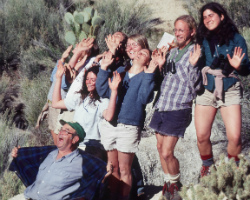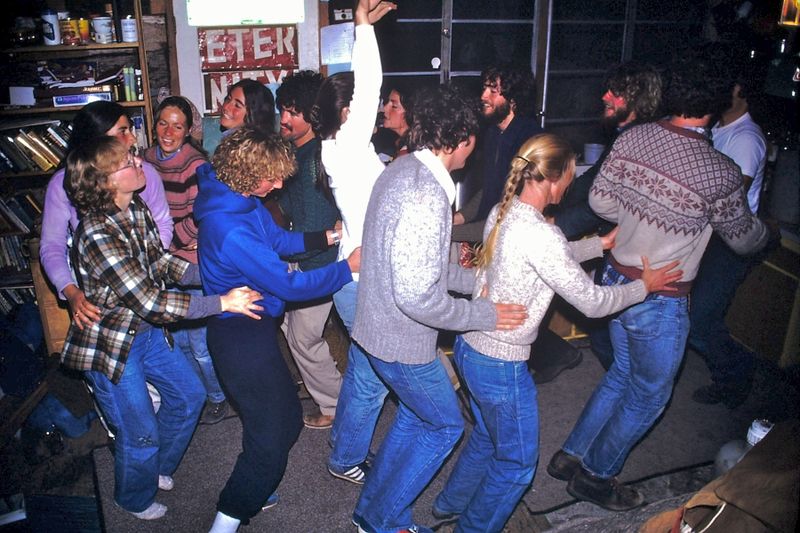Professor of Natural History
 Norris truly had a gift for inspiring the many students he worked with. As one of only 3 UC professors with the official title “Professor of Natural History”, Norris was a member of the UCSC Environmental Studies Department from 1973-1990. The Natural History Field Quarter class, created and taught by Norris from 1973-1990, achieved legendary status as a learning experience, and played a key role in launching the careers of dozens of biologists and environmental scientists who are leaders in their fields today.
Norris truly had a gift for inspiring the many students he worked with. As one of only 3 UC professors with the official title “Professor of Natural History”, Norris was a member of the UCSC Environmental Studies Department from 1973-1990. The Natural History Field Quarter class, created and taught by Norris from 1973-1990, achieved legendary status as a learning experience, and played a key role in launching the careers of dozens of biologists and environmental scientists who are leaders in their fields today.
Norris was also given the honorary title of "Professor of Wonderment" in a 1977 article written by Annie Gottlieb.
Professor Norris developed an approach to teaching students the art and practice of natural history that integrated both astute pedagogical principles and precepts for how naturalists should relate to the natural world:
- The naturalist must slow down and match nature’s rhythms. Through the repeated practice of being still and observing for extended periods, the naturalist can overcome “the threshold of boredom.”
- Natural history is a continual, iterative investigation. Professor Norris refers to the cycle of [making] direct observation, posing questions, and developing hypotheses as “spinning the wheel.” This is a critical process for naturalists to practice in order to refine their understanding of nature.
“In this process, I must throw away failed ideas as quickly as I pose new questions. My ‘throwing away muscles’ must be just as good as my ‘asking muscles.’ I call this process ‘spinning the wheel.’” -Ken Norris
- Focus attention on how places, organisms, and ecosystems change over space and time. Professor Norris constantly challenged his students to see that “nature is not just a here-and-now thing, but a thing through time, built of nesting connected layers of organization that allow the many faces of life to be expressed.
- Build a direct and personal relationship with the natural world, and allow this relationship to become deeply emotional. Professor Norris believed there is no point in studying something for which you didn’t feel a strong emotional attachment. He also knew that this attachment is the basis of a strong ethic of stewardship and sustainability.
- Learning must be fun for it to stick. Knowing that it motivated the deepest engagement, Professor Norris always incorporated an element of fun and whimsy into his teaching.
 “He who jokes, I feel, is not so filled with certitude as to be blinded, but instead is free to recognize the absurdities and inequities of our human world.” -Ken Norris
“He who jokes, I feel, is not so filled with certitude as to be blinded, but instead is free to recognize the absurdities and inequities of our human world.” -Ken Norris - Mutual peer mentorship gives students a sense of empowerment. Professor Norris de-emphasized one-way transmission of knowledge from teacher to student. Instead, he encouraged student collaboration, provided opportunities for students to share their special knowledge, and gave them the freedom to develop their own ideas about how the natural world works.
- Naturalists must remain humble.
